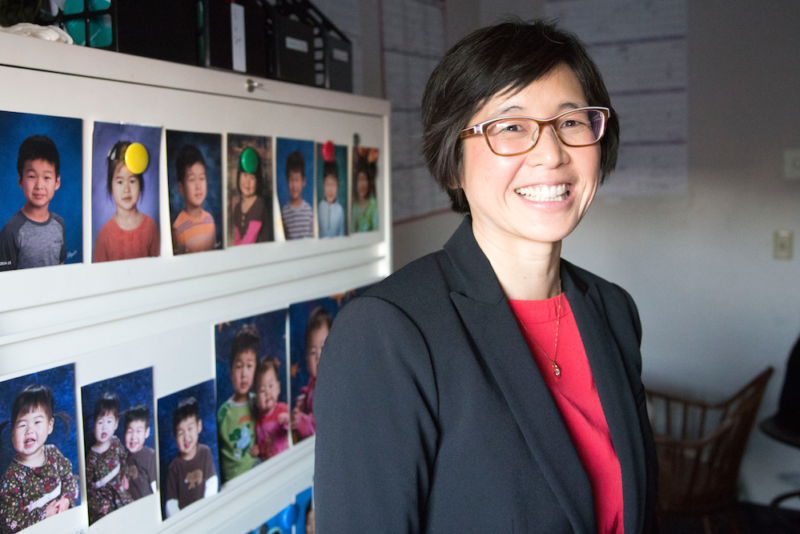
Stories

Q&A With Joyce Yen, Director of the ADVANCE Center for Institutional Change
Joyce Yen, a resource partner for the Civic Science Fellows program and Director of the University of Washington’s ADVANCE Center for Institutional Change, has dedicated her career to improving the STEM ecosystem for advancing underrepresented minorities in science and engineering. In February, Joyce was awarded a Presidential Awardee for Excellence in Science, Mathematics and Engineering Mentoring, an award that honors the role that America’s teachers and mentors play in supporting learners who will be future STEM professionals, including climate scientists, mathematicians, innovators, space explorers, and engineers.
Rita Allen Foundation President and CEO Elizabeth Christopherson reached out to Joyce to discuss her work to advance diversity and inclusion in the STEM workforce, and her vision for the future.
Elizabeth Christopherson, President and CEO of the Rita Allen Foundation: How would you describe yourself?
Joyce Yen: I have spent my career in STEM—first as a student, then as a faculty member, and now as someone focused on leadership development, diversity, equity, and inclusion in STEM. I primarily work with current and future STEM faculty. My work emphasizes creating communities, fostering agency, improving self-efficacy, and changing STEM culture to be more inclusive and equitable. I’m particularly focused on advancing people from historically underrepresented and marginalized groups in STEM.
EC: What inspires you to do the work that you do?
JY: Historically, STEM has not fully embraced women, people from marginalized racial or ethnic groups, and people with other marginalized identities. STEM is better when everyone can be at the table, bringing their knowledge and experience to identifying problems to solve, questions to ponder, and solutions to explore. I believe STEM can and should be a welcoming option for anyone and that everyone in STEM should be seen, supported and celebrated. My work is in service of this aspiration.
EC: You recently won a Presidential Award for Excellence in Science, Mathematics and Engineering Mentoring. What’s your vision for the future of the STEM workforce?
JY: I’m incredibly honored by this recognition which honors the often invisible but crticial work many do to support the people in STEM. STEM is not just an intellectual experience. It is also a communal and relational experience. We have collaborators, mentors, advisors, peers, friends, mentees, trainees, and many others who are part of our STEM experience and who, ideally, help us be better scientists and engineers. For me, this recognition underscores the importance of the people side to STEM excellence. Attending to who is and isn’t participating, thriving, and recognized in the STEM ecosystem is critical to the future of STEM and the STEM workforce.
EC: What bright spots in building and sustaining a diverse STEM workforce do you see emerging?
JY: More and more scientists and engineers are attending to diversity, equity, and inclusion. That’s been a huge bright spot. Culture change is happening. When thinking about others who want to engage in this work, I am inspired by adrienne maree brown’s book Emergent Strategy. She writes that in any moment there is “a next elegant step—one that is possible and strategic based on who is taking it and where they are trying to go. Find it and you cannot fail.” I love this quote! For each of us, we have a next elegant step in the DEI space. I invite all of us to take our next elegant step.